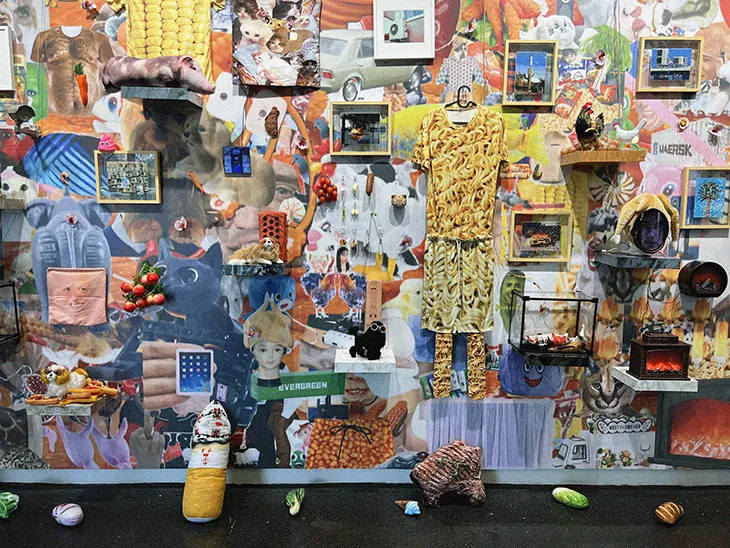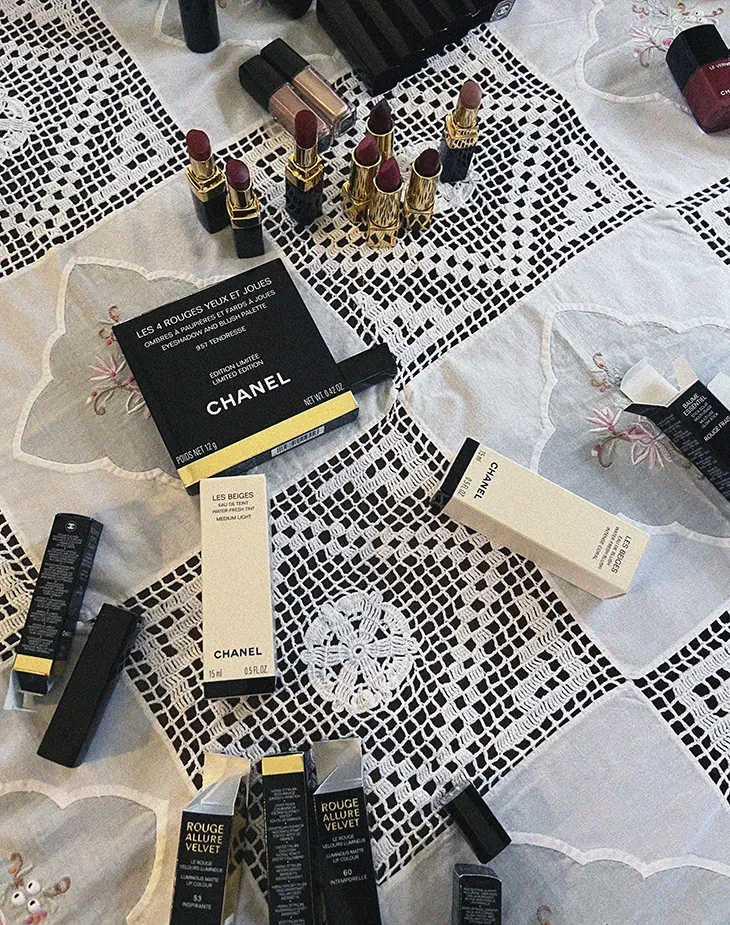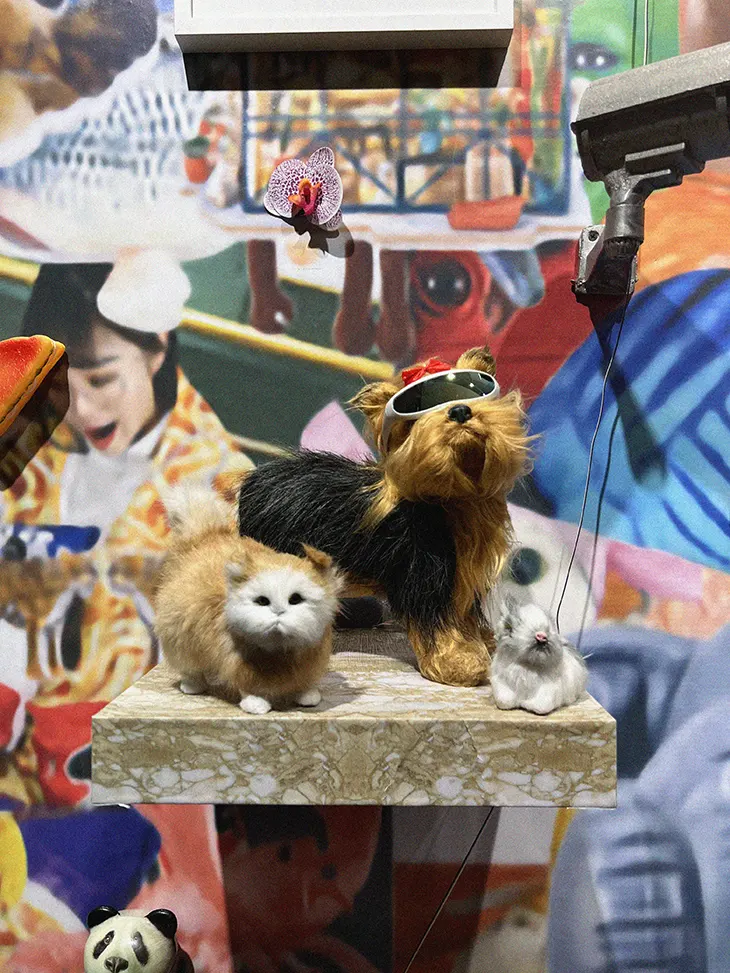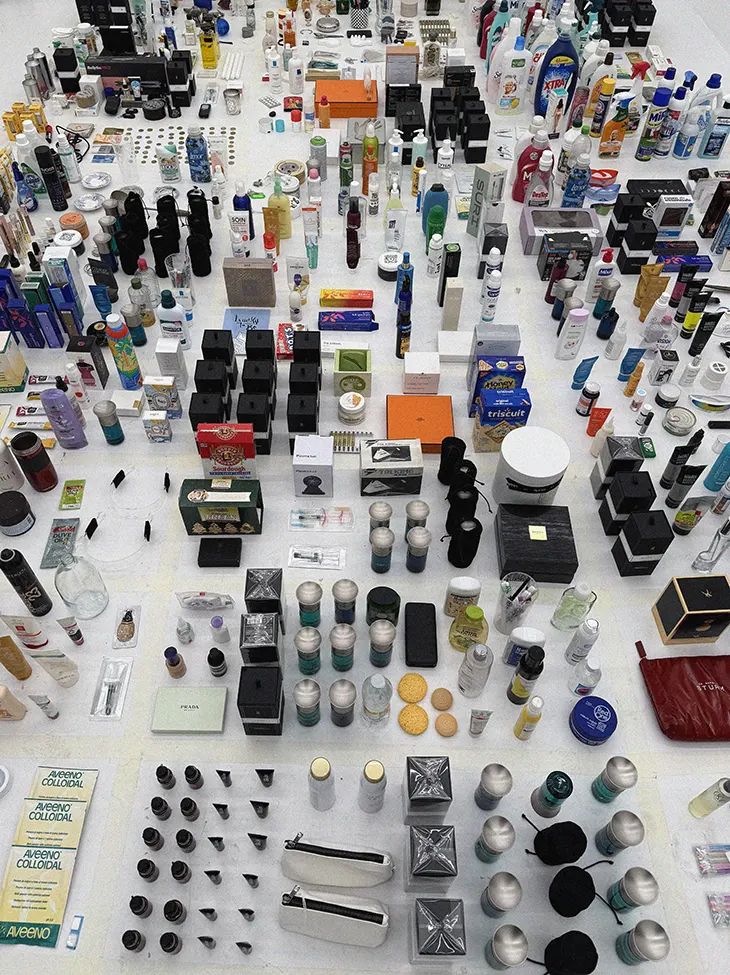
Desire no longer belongs to us. It belongs to the algorithm. Open your phone and you are already hungry: for shoes, for lipstick, for ceramics, for a lamp that promises to make your apartment look less like itself. The scroll manufactures appetite, and the appetite never ends.
DORIC ORDER
There was a time when shopping meant intention. You needed something, you sought it out, you bought it. Now we are prompted into wanting things we did not know existed. A $300 serum, a mango-colored coat, a stool shaped like a mushroom. The algorithm knows your size, your salary, your guilty pleasures. It remembers the boots you hovered over but did not buy. It uses your hesitation as evidence, feeding you the same product until resistance gives way to inevitability.

The cycle is permanent. A new lipstick shade drops and is immediately sold out. A Zara dress trends on TikTok and disappears from shelves within hours. A limited sneaker collaboration releases, only to be resold at triple the price. Scarcity keeps the appetite alive. If you missed it, don’t worry. Another product is already waiting. Desire doesn’t fade, it shifts. The feed ensures the next thing arrives before the last one has time to settle.
Satisfaction is irrelevant. These things exist not to fill a need but to keep desire intact. The system relies on hunger, not fulfillment. It is not only clothes or makeup or furniture. It is the endless scroll itself. An entire economy of attention, fed by the promise of novelty, disciplining us into permanent want. You are not meant to feel full. You are meant to stay wanting.
For women, appetite has always been political. The algorithm simply makes it visible in real time. We are told what to buy, but also how to age, how to decorate, how to cook, how to live alone without seeming lonely. Appetite is scripted and then policed. You are praised for restraint, punished for excess, and reminded that whatever you have is never quite enough. Even refusal is absorbed. “De-influencing” videos tell you what not to buy, but they still name products, keeping you within the orbit of relevance. The algorithm wins either way.
Desire no longer belongs to us. It belongs to the algorithm.
The rhetoric is always the same: this is the thing that will fix you, until the next thing arrives. The feed mirrors back not who you are, but who you should become. Your desire is organized into categories: wellness, skincare, travel, interiors, motherhood, dating. Feminist theory has long insisted that appetite is political, but the digital age has made this impossible to ignore. The question is no longer whether women’s desires are managed, but how much of them are still their own.
It is not a coincidence that I am writing this now. My husband, artist Vuk Ćuk, opens a new exhibition at Zvono Gallery today, and in the weeks of its preparation this subject became central to our conversations. His installation begins with objects bought on AliExpress: plastic lobsters, fake plants, mass-produced blankets, trivial things ordered by the thousands. He arranges them into feasts, collages, and banquets, transforming consumer waste into parody. The humor is sharp, but the critique is serious. The work asks: are we eating, or simply watching food spin past us forever?

As he prepared the exhibition, we spoke often about appetite. About how objects are stripped of function and remade as symbols of desire. About how the algorithm keeps appetite alive through absurdity, offering us plastic sandwiches and inflatable cactuses with the same conviction it offers a face serum or a leather bag. His work exposes the scale of the absurd. My concern is how women in particular are disciplined through it.
What Vuk stages with irony, plastic food rotating endlessly, digital collages of trivial products, echoes what we scroll through daily. The algorithm serves us plastic appetites: colorful, seductive, photogenic, and empty. We consume the image of consumption until desire itself feels artificial.
For women, this simulation of appetite is more than wasteful. It is another form of surveillance. Your purchases are recorded. Your hesitations are tracked. Your cravings are stored and sold back to you. The cycle knows when you feel insecure about your skin, when you feel bored in your apartment, when you feel behind in your career. It feeds you products not to solve the problem, but to keep the problem alive.
The algorithm serves us plastic appetites: colorful, seductive, photogenic, and empty.
Feminism once promised autonomy, but autonomy has been absorbed into consumption. To be independent now often means to be a consumer with more options. To be free is to choose between ten identical dresses recommended by the same machine. We are told this is empowerment: the ability to curate our lives, to buy the things that reflect who we are. But what if those lives have already been curated for us?
The feminist project must resist the narrowing of desire into buying. Appetite is not inherently dangerous. Appetite can be for intimacy, for rest, for knowledge, for change. Craving can be creative. Hunger can be generative. The problem is not appetite itself, but its capture by the feed. The algorithm reduces all desire to transaction. Feminism must remind us that appetite exists beyond consumption.

The politics of appetite will define how we live. What we crave, what we consume, what we discard. An exhibition may show us plastic lobsters spinning on a table. A scroll may show us another sweater we do not need. Both confront us with the same truth: appetite is being managed, manipulated, and resold to us as identity.
It is tempting to believe that resistance means logging off, buying less, opting out. But the truth is more complicated. The system is designed to absorb refusal, to market sustainability as another product, to turn resistance into trend. The answer is not purity. The answer is awareness. To see appetite as something that can belong to us again. To insist that hunger is not always a deficit. That desire can be directed toward what cannot be purchased.
Appetite can be for intimacy, for rest, for knowledge, for change.
In the end, appetite is about survival. We cannot give it up. But we can ask better questions about where it comes from and where it is leading us. We can treat it as more than an endless scroll. We can reclaim it as force, as energy, as possibility.
The work now is to resist being defined by the feed. To remind ourselves that appetite is not a trap but a tool. That desire is not only for products, but for lives that are expansive, contradictory, and real.




















